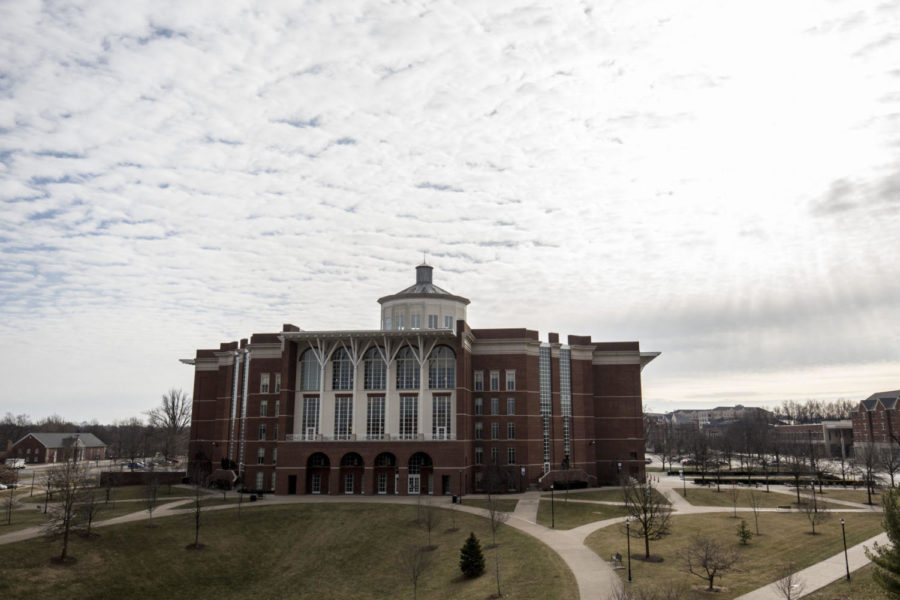The legends of UK: Why campus folklore is important
September 5, 2019
At UK, the library is sinking, there’s a foot-stabber on the loose and the Whitfield stump wants to steal your soul – or so they say.
Here is a brief background on some of the legends you may hear during your time at UK.
Touching the Patterson Statue’s toe before an exam brings students luck
This is one commonly told during freshman K week orientation and UK tours. Personally, I’ve never done it, but maybe it would’ve helped avoid that B in geology.
Several buildings on campus are haunted
Jewel, Donovan and Barker Hall all have had reports of hauntings. Often, according to the folklore department, the ghost is said to be of someone who died the year before in those buildings.
The William T Young library is sinking
This is possibly the most pervasive legend on campus, with many versions citing that the architects didn’t account for the weight of the books. The sinking library legend is common on campuses across the country, but the UK version is made all the more believable by the karst deposits – easily eroded limestone which often results in sinkholes – common throughout Kentucky.
The library foot-stabber
In 2011, there were the first reports of a man stabbing the feet of students in Willy T library. There haven’t been reports of his return since 2012, but the advice to wear shoes that cover your feet in the library persists.
If your roommate dies you get straight As
While you may receive extended deadlines and other accommodations, this legend is false at the University of Kentucky.
Getting hit by a car on campus results in free tuition
Once again, false at UK. Even if it’s a university vehicle, you can make a claim but tuition is not guaranteed.
The Whitfield stump will steal your soul if you touch it
I don’t know what this 230-million-year-old stump would want with souls, but I have no way of disproving it. You could say I’m stumped.
When I began looking into these legends, it was out of curiosity regarding which ones hold truth. After talking with Dr. Rouhier-Willoughby from the folklore department, however, I think that UK legends serve an important function on campus that transcends whether they are fact or fiction. As Dr. Rouhier-Willoughby stated, “Legends help us discuss controversial issues in a relatively safe way.”
She elaborated on this by explaining that the legend of the sinking library is more than just a legend; it allows us to discuss our distrust of those in power. The library was intentionally placed on the highest point of campus so that everyone could see it. Is it possible that the architects, administrators, or William T Young himself chose to satisfy ego over making the appropriate safety decisions?
Likewise, discussing hauntings in dorms or what happens to grades when a roommate dies helps students broach the difficult topics of death and the afterlife. I can also see how fears about tuition costs and grades are reflected in other aforementioned legends.
I don’t dispute that some legends can be damaging if taken too seriously (please don’t run out in front of cars to try to get free tuition). I do think, however, that having a healthy amount of mystery on campus not only keeps UK interesting, but also alludes to our rich history of storytelling and tackling difficult issues.
In this instance, it’s refreshing to be able to focus less on the answers and more on the conversation.






























































































































































